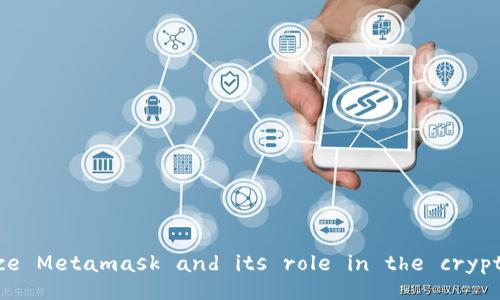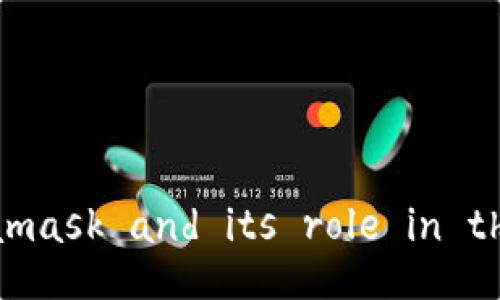2024-06-15 20:58:04
How to pronounce Metamask and its role in the cryptocurrency
Metamask is a popular digital wallet that allows users to interact with decentralized applications within the Ethereum blockchain. The name "Metamask" is a combination of two words: "Meta" and "Mask". "Meta" refers to the underlying technology behind the Ethereum blockchain, while "Mask" is a reference to the privacy and security features provided by the wallet.
So, how do you pronounce "Metamask"? The correct pronunciation is "met-uh-mask" with the emphasis on the second syllable. It's not uncommon to hear variations of this, such as "mee-tuh-musk" or "meh-ta-mask", but the former is the most widely accepted pronunciation.
Now, let's dive into the role that Metamask plays in the cryptocurrency world. As mentioned before, Metamask is a digital wallet that allows users to interact with decentralized applications (dApps) built on the Ethereum blockchain. These dApps cover a wide range of use cases, including decentralized finance (DeFi), online marketplaces, and social networks.
Metamask is particularly useful for DeFi applications, which allow users to engage in various financial activities in a decentralized and transparent manner. For example, users can lend and borrow funds, trade cryptocurrencies, and earn interest on their holdings. Metamask provides a secure and user-friendly interface for accessing these DeFi applications, making it easier for people to participate in the growing world of decentralized finance.
However, like any other digital wallet or platform in the cryptocurrency world, Metamask also has its own set of risks and limitations. It's important for users to understand the potential risks and take necessary precautions, such as enabling two-factor authentication and keeping their private keys safe.
Now, let's explore some common questions related to Metamask and its use in the cryptocurrency world:
 To use Metamask, you'll need to add the browser extension to your preferred web browser or download the mobile app. Once you've installed Metamask, you'll need to create a new wallet or import an existing one by entering your seed phrase. After that, you can use Metamask to interact with any decentralized application built on the Ethereum blockchain.
To use Metamask, you'll need to add the browser extension to your preferred web browser or download the mobile app. Once you've installed Metamask, you'll need to create a new wallet or import an existing one by entering your seed phrase. After that, you can use Metamask to interact with any decentralized application built on the Ethereum blockchain.
 Metamask allows users to access a wide range of decentralized applications built on the Ethereum blockchain. These include decentralized exchanges (DEXes), lending protocols, gaming applications, and more. However, users should always do their own research and make sure that the applications they use are secure and reliable.
Metamask allows users to access a wide range of decentralized applications built on the Ethereum blockchain. These include decentralized exchanges (DEXes), lending protocols, gaming applications, and more. However, users should always do their own research and make sure that the applications they use are secure and reliable.
What is a digital wallet, and how does Metamask differ from other wallets?
A digital wallet is a software program that stores private keys and allows users to send, receive, and manage their cryptocurrencies. Metamask is a browser extension and mobile wallet that specifically focuses on providing a user-friendly interface for accessing dApps built on the Ethereum blockchain. Unlike other wallets, Metamask doesn't store users' private keys on its servers, which enhances its security features.How do I set up and use Metamask?
 To use Metamask, you'll need to add the browser extension to your preferred web browser or download the mobile app. Once you've installed Metamask, you'll need to create a new wallet or import an existing one by entering your seed phrase. After that, you can use Metamask to interact with any decentralized application built on the Ethereum blockchain.
To use Metamask, you'll need to add the browser extension to your preferred web browser or download the mobile app. Once you've installed Metamask, you'll need to create a new wallet or import an existing one by entering your seed phrase. After that, you can use Metamask to interact with any decentralized application built on the Ethereum blockchain.
What are the risks associated with using Metamask?
As with any digital wallet or platform in the cryptocurrency world, there are certain risks associated with using Metamask. For instance, if you lose your private keys or if they get stolen, you may lose access to your funds. It's crucial to keep your private keys safe and secure by storing them offline. Additionally, users should be wary of phishing attacks, which can trick them into giving away their private information.What types of decentralized applications can I access with Metamask?
 Metamask allows users to access a wide range of decentralized applications built on the Ethereum blockchain. These include decentralized exchanges (DEXes), lending protocols, gaming applications, and more. However, users should always do their own research and make sure that the applications they use are secure and reliable.
Metamask allows users to access a wide range of decentralized applications built on the Ethereum blockchain. These include decentralized exchanges (DEXes), lending protocols, gaming applications, and more. However, users should always do their own research and make sure that the applications they use are secure and reliable.
